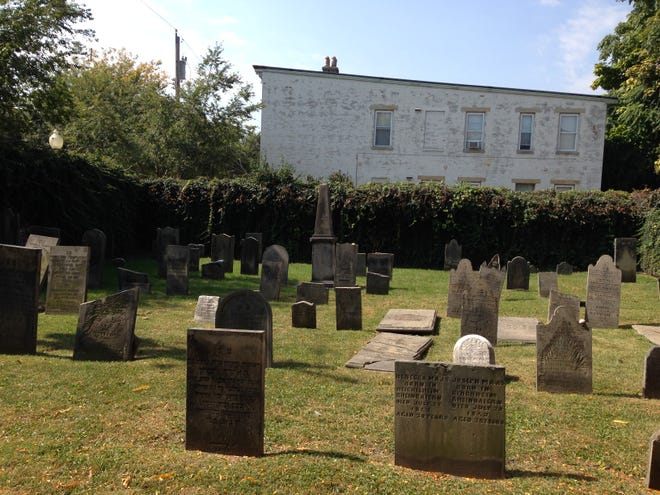Opinion: Bicentennial is a chance to reflect on progress of Jewish community

Editor's note: This is the first of 12 columns that will appear monthly during the yearlong Jewish Bicentennial celebration.
Today is an historic day in Cincinnati, a day to honor the important role that the Cincinnati Jewish community has played in American history. The Cincinnati Jewish community was born 200 years ago, making it the first Jewish community in the American frontier.
Cincinnati launched its Jewish community when a few pioneers bought land in the West End to create the first Jewish cemetery west of the Allegheny Mountains. The cemetery, known today as the Chestnut Street Cemetery, became the first Jewish site in the city.
Today, the community will rededicate the cemetery – a small plot of land with about 100 graves – to launch our year-long celebration, the Jewish Cincinnati Bicentennial.
Despite having our own religious culture and tradition, Jewish Americans have been engaged members of American society since we arrived here. With its ethos of innovation and leadership, Cincinnati’s atmosphere helped the Jewish community thrive.
As a leader of the local Jewish community, I take great pride in the achievements of the first Jewish settlers and the generations that followed. To name a few of those accomplishments:
- Albert Sabin, a Jewish medical researcher, developed the oral polio vaccine in Cincinnati, preventing paralysis and countless deaths around the world.
- Cincinnati was the birthplace of the nation’s first Jewish seminary, Hebrew Union College, which ordained the nation’s first female rabbi, Sally Preisand, 50 years ago.
- Cincinnati had several leaders who rescued Jews from the Holocaust, including Rabbi Eliezer Silver, who led a march of 400 rabbis on Washington, D.C.
- King Records, founded here by Syd Nathan, a Cincinnati Jew, launched many music careers, including the legendary James Brown.
And most recently, the Cincinnati Jewish community created Jewish Cemeteries of Greater Cincinnati, the nonprofit I run that now oversees 25 Jewish cemeteries and is a nationally recognized model. I’m filled with pride every time I get a call from another city in the country that wants to know, "How did you do THAT in Cincinnati?"
In Cincinnati, we build upon our history. The cemeteries, through our ancestors, tell the stories that fill us with pride in our community’s accomplishments and help us dream of what is yet possible.
But we don’t consider this Bicentennial celebration as one that’s only for the Jewish community. We consider this a citywide celebration, which honors one community among the rich accomplishments of ALL local immigrant and minority communities. That’s why so many iconic Cincinnati institutions, under the leadership of the Jewish Federation of Cincinnati, are participating in the Bicentennial, from the Cincinnati Museum Center to the Reds Community Fund.
The Bicentennial is an opportunity to reflect on the progress the Jewish community has made and to strengthen and build bridges throughout our diverse region. We want everyone living in Cincinnati, no matter their race or religion, to be part of our shared story by honoring the distinct cultural and religious traditions each community carries.
Today, as we honor our past, we look boldly to the future to build upon what our ancestors created with their adventurous spirit, bolstered by a city that has embraced us.
David C. Harris is executive director of Jewish Cemeteries of Greater Cincinnati, a nonprofit that oversees 25 Jewish cemeteries. The entire community is invited to the Chestnut Street Cemetery rededication at 10 a.m. at Central Avenue and Chestnut Street.